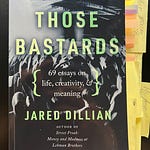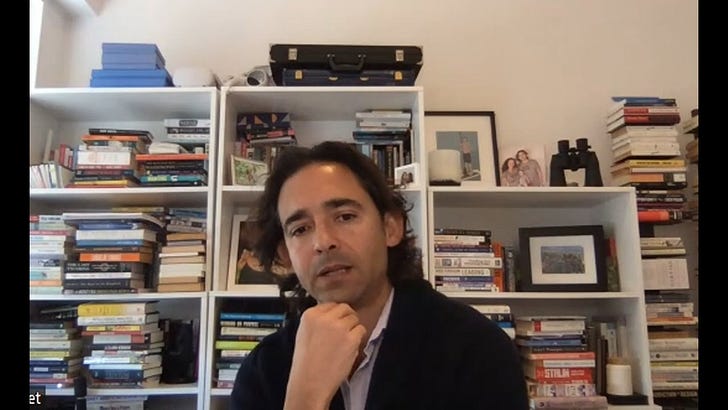Hello everyone,
I’m happy to share my conversation with Evan Tindell of Bireme Capital. I’ve enjoyed Evan’s thoughtful letters over the past couple of years and it was time to talk about this approach to investing. We dove into Evan’s background as a poker player, how he looks to exploit biases in his investment process, and how he navigated the ‘20-’21 bubble in growth stocks as a short-seller and value-oriented investor.
If you’re interested in his work, check out his three letters with thoughts on the bubble (part I - birth, part II - anatomy, part III - apex -“We believe inflation is likely to be the catalyst that ultimately pops the everything bubble” from 2Q21).
Books mentioned: The Theory of Poker by David Sklansky.
I hope you enjoy the conversation as much as I did. You can listen to it on: Spotify, Apple, at anchor, and via RSS.
Through Evan I also found this interesting research paper on poker players as investors: “our findings suggest that skilled poker players are, on average, better fund managers.”
“Extant academic work shows that winning poker players are more patient and less susceptible to behavioral biases such as the disposition effect … “patience is rewarded” among winning poker players, and these players tend to avoid “overweight[ing] frequent small gains vis-à-vis occasional large losses.”
However, it’s not as simple as picking a prominent poker player and hedge fund manager. It seems that after winning public tournaments, these managers take in more capital which leads to a decline in alpha. 🤷♀️
The smart bet seems to be to pick someone good at poker but under the radar and not playing tournaments.
Disclaimer: I write for entertainment purposes only. This is not investment advice. I am not your fiduciary or advisor. Do your own work and seek your own financial, tax, and legal advice before making any investment decisions.
Some favorite quotes
“What poker teaches you is how to think rationally in the face of that incomplete information. You always have to be updating your model based on the new information. Whereas in chess you know exactly what's going on and the pieces are fixed on the board. In poker, you never really know what's going on. One thing that I think is interesting to take away from poker is you can never actually be totally sure if you had the right strategy at all.”
“Over time, you have to capitalize on their mistakes essentially. It's a little bit more clear in poker. You're sitting right across the table from someone. You can just see that they're calling pre-flop with 37 off-suit and you just have to punish it by waiting until you have pocket tens and then raising a lot before the flop. It's a little bit more clear in poker that I see what exactly you're punishing. Obviously in investing, people don't think about this really, but any alpha that you are generating relative to the overall market is coming out of someone else's like negative alpha.”
“Availability bias, the way we look for that is stocks that have done poorly where there’s an obvious newsworthy story, some type of like legal or regulatory action or some reputational thing that happens. That's one reason I have enjoyed digging into some of these Chinese stocks, because there's an obvious story about why the stocks are falling, having to do with regulation. And it's not directly related to the business doing. So that's the key, those are the kind of stories where I say, okay, there's this story about why people are selling the stock. It's not directly related to the business. Let me go do some research to try to figure out if it will end up affecting the business in the long-term. … Those situations are obviously very rare. Most of the time the problems that the market sees are roughly correct.”
“A number of times I've gotten ideas from following a competitor of my current company and they did something or they merged with another company or, I have a list of, uh, of companies that I'm following. The way I describe it is I'm constantly updating my notes on all those companies until something just hits me over the head.”
Enjoyed this piece? Please let me know by hitting the ❤ button. It makes my day to see whether my readers like the content (it really does!) Thank you!
If you enjoy my work, please consider sharing it with friends who might be interested.🙏















🎙Investors of Fintwit: Evan Tindell of Bireme Capital